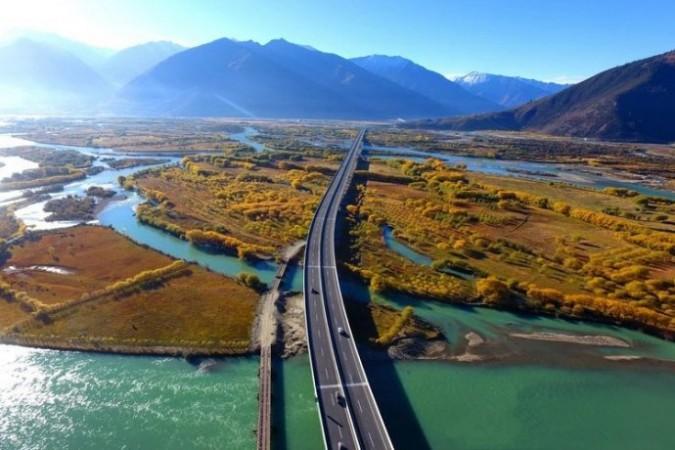China has recently opened a major expressway connecting Lhasa and Nyingchi — the two most important cities in Tibet.
While the move is ostensible to add to the "tourist attractions" to the region, it could easily serve as a strategic advantage for China, which could use the expressway to transport military personnel and equipment closer to Indian borders, especially near Arunachal Pradesh.
To some, this may bring back memories of the Doklam standoff between India and China at the eponymous tri-junction the two countries share with Bhutan.
It could also be viewed as the newest move by China to ramp up its presence along its border with India, where it might be looking to employ salami tactics to gain more ground from India.

Lhasa-Nyingchi expressway
Xinhua, the official news agency of China, reported on Sunday that an expressway had been opened "linking Lhasa and Nyingchi, the two major cities and tourist attractions in Tibet Autonomous Region."
The report said: "The 409-km toll-free expressway cuts Lhasa-Nyingchi travel time from eight to five hours at a speed limit of 80 km per hour." It also quoted the local government as saying that the expressway had been built at a cost of $5.8 billion.
More significantly, the report also said: "Heavy trucks are temporarily banned from using the expressway."
![Lhasa-Nyingchi expressway represented on the map. [Not to scale; for representational purposes only] Lhasa-Nyingchi highway](https://data1.ibtimes.co.in/en/full/663696/lhasa-nyingchi-highway.jpg?h=450&l=50&t=40)
Strategic importance
That the expressway has been built from Lhasa to Nyingchi could be a cause for concern for India, because it means China now has the capability to transport personnel and heavy equipment — both of the military variety — closer to the Indian border.
The Xinhua report may have helpfully stated that heavy trucks have been "temporarily banned," but that might not stop China from sending heavy transport down that road and very close to the Indian border, where Arunachal Pradesh lies.
The new expressway was inaugurated barely a couple of weeks after China talked of a highway and a proposed railway line in Tibet, thereby fortifying its position in the region. These, combined with the newly-unveiled expressway could mean India may be staring at yet another standoff along this border.








